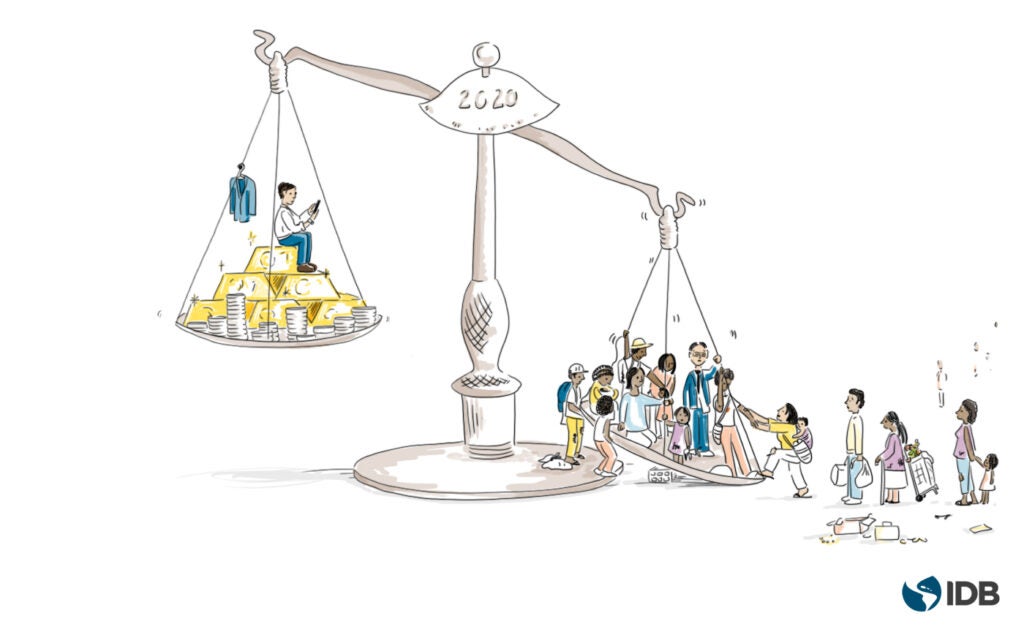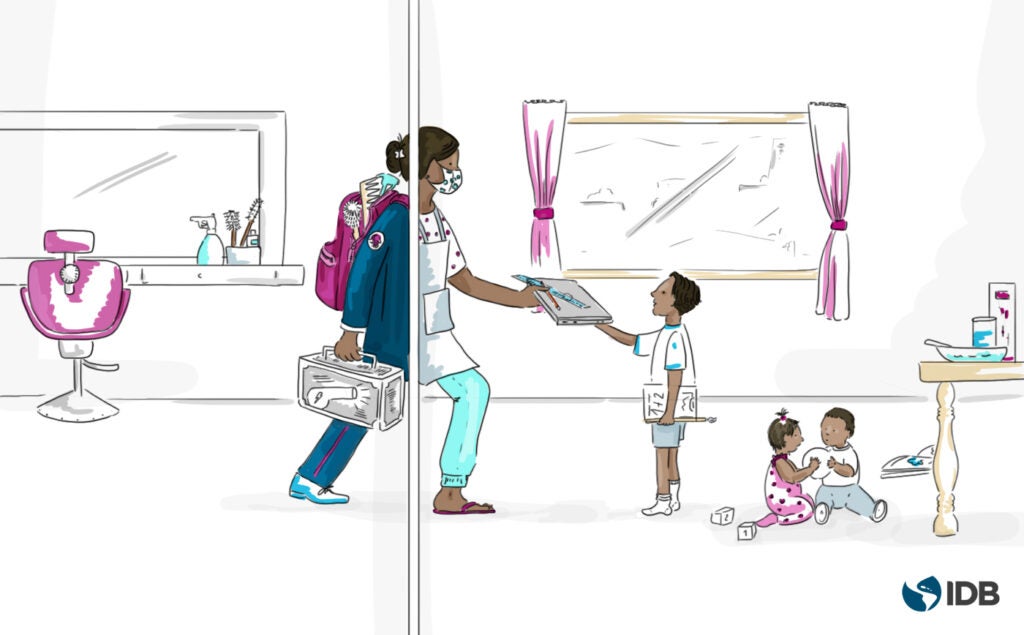For nearly two decades between 1990 and 2018, women in Latin America and the Caribbean made substantial progress in reducing the large gender gap in the labor market. As female employment levels surged, and unemployment rates fell, labor force participation rates among women rose a full 25% and wage differentials dropped. To be sure, this progress … [Read more...] about Labor Market Gender Gaps in the Time of COVID in Latin America and the Caribbean
The Pandemic Is Increasing Inequality in Latin America
Inequality in Latin America has increased during the pandemic. That is our conclusion in a forthcoming study in which we noted that 2020 saw a reverse in the trend toward poverty reduction and greater equality that started 20 years ago. The study is based on data generated through employment and household surveys conducted over the past three decades. For 2020, information … [Read more...] about The Pandemic Is Increasing Inequality in Latin America
A crisis like no other: Why informal work did not spike under COVID-19
Before Peru was struck by COVID-19, Diana Quispe* was a part-time hairdresser based in the outskirts of Lima, who served customers in their homes in one of the city’s wealthier districts. She was an informal sector worker, like almost 80% of workers in Peru and over 50% across Latin America, with no health insurance or paid sick leave. But when the government announced … [Read more...] about A crisis like no other: Why informal work did not spike under COVID-19
Empowering mothers while enhancing early childhood development
In developing countries, empowering women and enhancing early childhood development are often pursued as separate policy initiatives. This is partly because female empowerment and child development can be perceived as potentially at odds with each other, as some believe a greater participation of women in the labor force stands in the way of child development, since children … [Read more...] about Empowering mothers while enhancing early childhood development
Are multilateral banks really supporting countries in times of need?
Does it happen to you that you carry an umbrella almost always in case it rains, and never need to use it except -of course- when it’s raining, and it’s precisely then that you realize that you forgot it? Isn’t it the case on any given day walking outside, that we are willing to pay more for an umbrella when it is pouring than when it is sunny? The umbrella is a device that … [Read more...] about Are multilateral banks really supporting countries in times of need?





